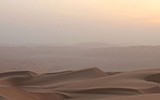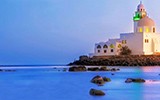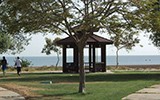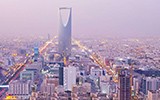Saudi Arabia may not be one of the most well-known educational destinations. In fact, a lot of Saudi nationals do prefer to study ...
Living in Saudi Arabia guide for expats
All the information you need to relocate and live in Saudi Arabia.
Our selection of articles for expatriation in Saudi Arabia
Saudi Arabia is governed by the Shari'a, which is the Islamic Law. According to Wahhabism, animals, and dogs, in particular ...
Riyadh is one of the biggest and most beautiful cities in Saudi Arabia, with quite a bit to offer to expats in their free time ...
If you are planning to live and work in Saudi Arabia, healthcare is definitely something to look into. Here is an overview of the ...
Do you wish to study in Saudi Arabia? Do you have your kids' schooling in mind? Would you like to enroll, but don't know ...
With a fragile economy coupled with the expat exodus, Saudi Arabia took drastic measures to contain the COVID-19 crisis. Crowd ...
Finding accommodation is one of the major steps to relocating to a new city. Riyadh, the capital of Saudi Arabia, is considered ...
Riyadh, the capital of Saudi Arabia, has a lot to offer, even though it is difficult to give you a precise list of things you can ...
If you have decided to settle in Saudi Arabia, then you will need to find a way of getting around. Until recently, Saudi Arabia ...
Riyadh is undoubtedly the most popular destination in Saudi Arabia. Discover, in this article, how to get around the city ...
Saudi Arabia can be a challenging destination for women. As a strict Islamic country, Saudi Arabia imposes a lot of restrictions ...
Settling in Saudi Arabia can create a culture shock among many expats due to the lack of proper information. It is important to ...
As an expat in a new environment, life can be full of surprises. Unfortunately, sometimes, these surprises can be unpleasant. In ...
Driving in Saudi Arabia is the easiest and most convenient way to get around. That being said, expats in Saudi Arabia will have ...
If you are coming to Saudi Arabia with children and plan to work full-time, you may want to look into getting some help ...
About Saudi Arabia
Saudi Arabia has a rich cultural heritage
Saudi culture is deeply rooted in Arab and Islamic traditions. One of the cultural aspects that first stands out to the visitor is the traditional clothing. Unlike in most countries, where Western clothing styles are prevalent, Saudi Arabia has maintained its traditional dress. These include the traditional thobe for men and the abaya for women, both notable for being worn on formal and informal occasions. The thobe is usually white, although other colors are more prevalent in winter. It is often worn with the traditional headdress—the shemagh which features a red and white checkered pattern, or the ghutra, which is plain white. The abaya tends to be black, as was enforced in the past. However, nowadays, colorful abayas are often seen as well. Other significant cultural items are Saudi coffee, dates and palm trees in general, and camels.
Tourism is on the rise in Saudi Arabia since 2019
While tourism is very young in Saudi—it first started in 2019—it has been one of the fastest-growing worldwide, making Saudi Arabia one of the top destinations in terms of yearly visitors. For a long time, it seemed as if only work visas, business visas and religious visas could allow you to visit the Kingdom. Nowadays, citizens of 66 countries can travel to Saudi Arabia with an electronic visa or a visa on arrival. This is in addition to the neighboring GCC countries, whose citizens enjoy freedom of movement in Saudi Arabia.
If you are looking to relocate and work in Saudi Arabia, you will need to apply for a work visa. Since the work visa requires an employment contract, you must first sign a contract with a Saudi employer. Once this is done, you will need to coordinate with the Saudi Embassy in your country to gather a list of requirements, as well as contacting the visa application agency and your employer in order to submit a complete file for approval. The government has launched a new platform to handle all visa requests, KSA Visa. Note that the process to gather all documents can be tedious, so avoid delaying this to the last minute.
The cost of living in Saudi Arabia is on the rise
Listening to Saudis or foreigners who have lived here for a while will give you the sense that the cost of living has dramatically increased in recent years. This will be particularly true for Riyadh, as it is rapidly growing, expanding, and attracting investments. It is not uncommon to hear that, in certain areas, the rent has doubled over the last five years. For a more detailed breakdown of actual rental prices in Saudi Arabia, see our different articles about accommodation in cities such as Jeddah or Khobar.
The price of gas has also increased, from SAR 0.6 for a liter in the early 2000s to SAR 2.18 in 2024, which is quickly felt in a country where driving is, in most cases, a necessity. However, the cost of living in general, will still be lower than in most European cities.
In terms of groceries, there is a noticeable difference in prices from the more affordable local products and imported goods. Similarly, processed foods tend to be much more expensive than whole foods.
Getting around in Saudi Arabia can be complicated
Transportation in Saudi Arabia is quite uneven. On one hand, it is very well served by air, with its main international airports, King Khalid International Airport in Riyadh and King Abdulaziz International Airport in Jeddah, quickly becoming major regional hubs, much like the neighboring Dubai and Abu Dhabi airports in the United Arab Emirates. It is also supported by a wide network of roads, and urban centres are designed to accommodate for the high volume of cars traveling back and forth every day.
On the other hand, public transport is still rare. There are three railroad lines: two connecting the Riyadh region with another region, namely the Northern and Eastern regions. The third, the Western line connects the urban centres of the coast with the two holy cities, Makkah and Madinah. While trains are used by many Saudis for business in other cities, or to visit family and friends over the weekend, they are not, as in other countries, a means of daily commuting.
Urban centres are trying to develop a network of buses and a metro in Riyadh. However, it must be said that these efforts are not gaining much traction. Whether this is due to limited coverage, the convenience of driving, or because driving is a significant part of Saudi culture is hard to say. However, with traffic congestion being a daily hassle, some Saudis believe that the metro will make a big impact in the near future.
The reality, as it stands in 2024, is that unless you live in a compound next to your work, or your company is providing transportation, you will need a car in Saudi Arabia. Although it can quickly become expensive, it is fairly easy to rent a car in most places. You can also use ridesharing and carpooling apps, as they are very popular.
Saudi Arabia offers high-quality services within the private healthcare network
Healthcare in Saudi Arabia is widely available and offers high-quality services. There are plenty of public and private hospitals. Public hospitals, however, are catering to Saudi citizens, so you will likely rely on private hospitals for your needs.
Saudi Arabia takes the health of its citizens and residents very seriously. As a foreigner, you will likely have to take a blood test on your first day of work as part of your Iqama application procedure. This is a normal mandatory step, even if you have already done one for your visa. Most of the blood tests are targeted to avoid AIDS and hepatitis from spreading in the country.
Health insurance is mandatory in Saudi Arabia and is provided by your employer, who will assign an insurance company. Your position, industry and company will determine which “class” your insurance falls under, which, in turn, will dictate which services are available to you.
Arabic is the official language in Saudi Arabia
Arabic is the official language of Saudi Arabia, although resources are almost always available in English as well. Signs, apps and official websites will have both an Arabic version and English version. It must be said that the translation is, overall, of high quality. Customer support will also be available in English and traffic signs are bilingual as well. Not every shop or office will have English speakers, though, and a knowledge of Arabic will definitely help, even if it is below the intermediate level. Ultimately, it will depend on your location and your work. Saudis and other Arab residents are usually understanding, especially if you make the effort to start with some Arabic.
Regions have slightly different but largely mutually intelligible dialects, with the big divisions being the Najd accent in Riyadh and Eastern province, and the Hejaz accent in the West, notably Jeddah, Madinah and Makkah. It is commonly accepted that the Saudi dialect, and to a great extent, Gulf or Peninsular Arabic, is the closest to fusHa—Modern Standard Arabic.
Saudi Arabia has adopted new public holidays
The most important public holidays in Saudi Arabia are:
- Eid al-Fitr which celebrates the end of Ramadan and constitutes a public holiday of 10 days.
- Eid al-Adha which celebrates the end of Hajj, the holy pilgrimage, and constitutes a public holiday of 10 days.
More recently, two public holidays have been officialized, with possibly a third on the way:
- National Day, which celebrates the unification of the Kingdom of Saudi Arabia by King Abdulaziz in 1932. It is a one-day holiday and is celebrated on 23 September (it may be turned into a two-day holiday if it falls on a Monday, for example). It became a public holiday in 2005.
- Founding Day, which celebrates the founding of the al-Saud dynasty. It is celebrated on February 22. It became a public holiday in 2022.
- Flag Day, which celebrates the adoption of the national flag of Saudi Arabia in 1937. It is celebrated on March 11. It became a public holiday in 2023, but workers are expected to show up as businesses have normal opening hours.
Saudi Vision 2030: A giant project to move away from reliance on oil revenues
Saudi Vision 2030, often simply referred to as Vision 2030, is a major government program launched by the Crown Prince Mohammed bin Salman on April 25, 2016. The project encompasses almost all aspects of life in Saudi Arabia, with its core objective being to reduce the country's dependence on oil revenues and improve quality of life for its citizens and residents. Part of Vision 2030 involves engineering and building multiple "megaprojects" that will be autonomous cities; examples include NEOM, Qiddiyah, the new Murabba, the Line or the Red Sea Project. The bid and subsequent victory for Expo 2030 will further Vision 2030's goal to make the Kingdom a major global player.
In terms of quality of life, there are multiple initiatives aimed at improving conditions in major city centers, such as Green Riyadh, which seeks to reduce the temperature and pollution while encouraging residents to enjoy the outdoors through the construction of parks and the addition of trees around the city. The Quality of Life program also aims to lower unemployment and increase the percentage of women in the workforce.
The project involves further initiatives and investments, such as the launch of the first Saudi Electronic Automobile brand Ceer Motors; the commercial airline Riyadh Air; and the game development company Savvy Games Group.
You can learn more about the scope and projects on the Saudi Vision 2030 projects Wikipedia page.
Saudi Arabia has a dynamic new entertainment industry
Another aspect of Vision 2030 is the promotion of entertainment and transforming Saudi Arabia into a hub for major events. This has led to a steady influx of tourists seeking entertainment. Following decisions to allow women into stadiums, open cinemas, and host concerts, Saudi Arabia has increasingly attracted major events to the region. These include bids for the World Cup and the Winter Olympics, concerts by world-renowned artists, major sports and esports events, and the participation of international players in the SPL, the Saudi Pro League.
Saudi Arabia has a rich cuisine and coffee culture
Saudi Arabia offers a traditional dish to satisfy all cravings. The national dish, Kabsa, comes in as many varieties as there are regions. The most common version features a base of rice with chicken and vegetables on top. Saudi cuisine is not traditionally spicy (although Saudis usually enjoy spicy food), it uses a variety of spices—most notably cardamom and cinnamon—that give each dish a distinctive local flavor.
The national beverage is Saudi coffee, which is pale and golden in color compared to Western coffee. It also features a mix of spices, and some say that each family has its own secret recipe, with cardamom being the most common ingredient. Drinking Saudi coffee is a part of most social events, and it comes with its own etiquette. Arabic coffee, as it is sometimes called, is poured from a pot called a dallah into small cups called finjan. As part of the Saudi etiquette, the finjan should not be filled to the brim, and the elders should be served first as a sign of respect.
Other popular dishes in Saudi Arabia include jareesh and saleeg, the latter also regarded as a national dish. Dishes from neighboring Arab countries, such as magluba and koshari are also very common.
If you live in a major city, you will likely be able to find a variety of cuisines to suit your tastes. Fast food is also very popular, with local and American brands dominating the hamburger, fried chicken and pizza markets.
Shopping in Saudi Arabia: combining leisure and convenience
Some say that, due to extreme climate, shopping malls in Saudi Arabia are the best place to walk because they have large hallways and offer air conditioning away from the heat. Whether you visit a mall to shop, exercise or just browse, chances are that it will be a pleasant experience. This is true because malls offer such a vast array of shops and facilities. Most of them will offer a selection of brands, a supermarket, bakeries, clothing stores, and perfumes, and often have a large food court. They may even include a cinema. Going to the mall is a very popular social activity for Saudis and residents alike. On top of that, the streets of most neighborhoods are filled with shops and cafés.
In addition, shopping is made easier by an efficient delivery network. It could be said that every item you need could be delivered at your door. Amazon is extremely popular, but other local and international alternatives also exist. Most companies and restaurants will provide a delivery service, usually for an extra fee.
Latest housing offers in Saudi Arabia
Latest job offers in Saudi Arabia















